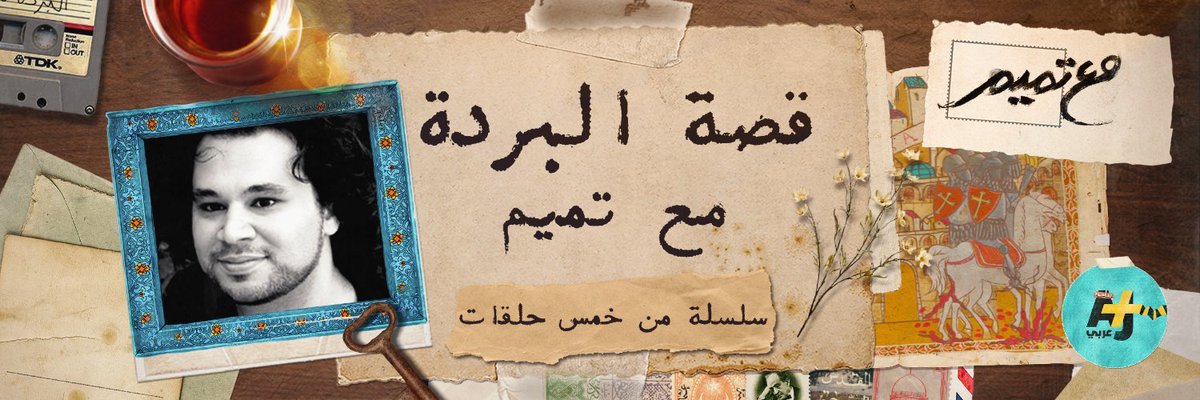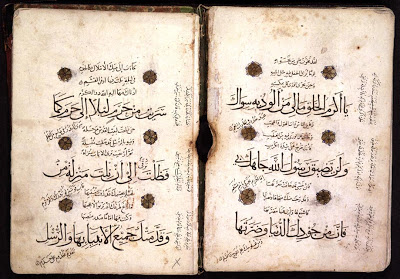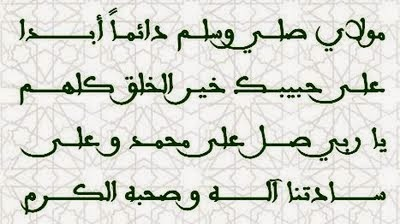In the last month @TamimBarghouti posted a series of 5 videos situating his poem ‘Burda’ in literary & historical context of poems by Busiri & Shawqi
في الشهر الماضي تميم البرغوثي قد شرح قصيدة البردة مع خلفية شعرية (البصيري والشوقي) وتاريخية في خمس حلقات
ملخصنا في https://abs.twimg.com/emoji/v2/... draggable="false" alt="🧵" title="Thread" aria-label="Emoji: Thread">1/10
https://abs.twimg.com/emoji/v2/... draggable="false" alt="🧵" title="Thread" aria-label="Emoji: Thread">1/10
#مع_تميم
في الشهر الماضي تميم البرغوثي قد شرح قصيدة البردة مع خلفية شعرية (البصيري والشوقي) وتاريخية في خمس حلقات
ملخصنا في
#مع_تميم
1st video- Origins w/Ka& #39;b b Zuhayr
This story of the burda has become a symbol for the relationship between eloquence of speech & the political power stemming from it.
فقد صارت قصة البردة هذه رمزاً للعلاقة بين بلاغة الكلام والسلطة السياسية النابعة منه.
https://youtu.be/d_-pRC_LZJQ
2/7">https://youtu.be/d_-pRC_LZ...
This story of the burda has become a symbol for the relationship between eloquence of speech & the political power stemming from it.
فقد صارت قصة البردة هذه رمزاً للعلاقة بين بلاغة الكلام والسلطة السياسية النابعة منه.
https://youtu.be/d_-pRC_LZJQ
2/7">https://youtu.be/d_-pRC_LZ...
كعب بن زهير كتب المديح "بانت سعاد" ومنذ يقرأه، محمد وضع على كتفيه البردة، وهكذا يسمي القصيدة بإسم "قصيدة البردة"
Ka& #39;b ibn Zuhayr wrote the praise poem "Su& #39;ad left" and while reading it, Muhammad put on his shoulders the cloak, and thus the poem was called "poem of the cloak."
3/
Ka& #39;b ibn Zuhayr wrote the praise poem "Su& #39;ad left" and while reading it, Muhammad put on his shoulders the cloak, and thus the poem was called "poem of the cloak."
3/
2nd video - al-Busiri& #39;s Burda
The Sanhaja Poet wrote this 160-stanza praise poem in 7H/13CE, one of the most famous in its genre, the original meme w every line ending in mīm https://abs.twimg.com/emoji/v2/... draggable="false" alt="😂" title="Gesicht mit Freudentränen" aria-label="Emoji: Gesicht mit Freudentränen">
https://abs.twimg.com/emoji/v2/... draggable="false" alt="😂" title="Gesicht mit Freudentränen" aria-label="Emoji: Gesicht mit Freudentränen">
بردة البصيري - الشاعر الصنهاجي كتب مديحه ب١٦٠ بيت في القرن ٧هـ\١٣م
https://youtu.be/XUQMLX7OZWo
4/10">https://youtu.be/XUQMLX7OZ...
The Sanhaja Poet wrote this 160-stanza praise poem in 7H/13CE, one of the most famous in its genre, the original meme w every line ending in mīm
بردة البصيري - الشاعر الصنهاجي كتب مديحه ب١٦٠ بيت في القرن ٧هـ\١٣م
https://youtu.be/XUQMLX7OZWo
4/10">https://youtu.be/XUQMLX7OZ...
الكواكب الدرية في مدح خير البرية (المعروف كـ"البردة") قصيدة ميميّة مشهور بالبيت:
مولاي صل وسلم دائما أبداعلى حبيبك خير الخلق كلهم
"My patron, may prayers and peace be always
Upon your beloved, the best of all creation"
Is a famous line from the poem known as "The Cloak" 5/10
مولاي صل وسلم دائما أبداعلى حبيبك خير الخلق كلهم
"My patron, may prayers and peace be always
Upon your beloved, the best of all creation"
Is a famous line from the poem known as "The Cloak" 5/10
3rd video - Shawqi
In the 19th/14th H c Egyptian Ahmed Shawqi wrote "Nahaj al-Burda" alongside his championing of epic poetry in Arabic.
في القرن ١٤هـ\١٩م كتب الشاعر المصري احمد شوقي "نهج البردة" بجانب تشجيعه الشعر الملحمي بالعربي
https://youtu.be/5p2OCrIfsEk
6/10
https://youtu.be/5p2OCrIfs... href="https://twtext.com//hashtag/%D9%85%D8%B9_%D8%AA%D9%85%D9%8A%D9%85"> #مع_تميم
In the 19th/14th H c Egyptian Ahmed Shawqi wrote "Nahaj al-Burda" alongside his championing of epic poetry in Arabic.
في القرن ١٤هـ\١٩م كتب الشاعر المصري احمد شوقي "نهج البردة" بجانب تشجيعه الشعر الملحمي بالعربي
https://youtu.be/5p2OCrIfsEk
6/10
Shawqi& #39;s Nahaj al-Burda is also famous because it was set to music and performed by Umm Kalthoum.
نهج البردة من شوقي قصيدة مشهورة من عرض موسيقي أم كلثوم.
https://youtu.be/l_s4BKQk7Gg
7/10">https://youtu.be/l_s4BKQk7...
نهج البردة من شوقي قصيدة مشهورة من عرض موسيقي أم كلثوم.
https://youtu.be/l_s4BKQk7Gg
7/10">https://youtu.be/l_s4BKQk7...
4th video - "Introduction" المقدمة
We finally make it to the introduction to Tamim’s own poem. Here the political contexts of each poem is highlighted, perhaps indicating how Barghouti pivots from the traditional laudatory religious tone of the Burda:
https://youtu.be/0VrWjrosT5o
8/10">https://youtu.be/0VrWjrosT...
We finally make it to the introduction to Tamim’s own poem. Here the political contexts of each poem is highlighted, perhaps indicating how Barghouti pivots from the traditional laudatory religious tone of the Burda:
https://youtu.be/0VrWjrosT5o
8/10">https://youtu.be/0VrWjrosT...
5th video - "The text"
Tamim al-Barghouti reads his 200-line Burda, replete with intertextual references and archaizing stylistic nods to each of the previous examples - he even repeats Busiri& #39;s famous line:
مَوْلايَ صَلِّ وَسَلِّمْ دَائِمَاً أَبَدَا
https://youtu.be/D0GXS4zCPU4
9/10">https://youtu.be/D0GXS4zCP...
Tamim al-Barghouti reads his 200-line Burda, replete with intertextual references and archaizing stylistic nods to each of the previous examples - he even repeats Busiri& #39;s famous line:
مَوْلايَ صَلِّ وَسَلِّمْ دَائِمَاً أَبَدَا
https://youtu.be/D0GXS4zCPU4
9/10">https://youtu.be/D0GXS4zCP...
To end in Tamim& #39;s own words:
In conclusion, I wrote this poem to help the soul over the body, the family against estrangement & mankind against cruelty
ختاماً ، فقد كتبت هذه القصيدة استنجاد بالروح على الجسد ، وبالأهل على الغربة ، وبالأنس على الوحشة.
https://www.shorouknews.com/news/view.aspx?cdate=19012013&id=66c0a75c-eef0-47d5-ad91-1da7a0e7d8ce">https://www.shorouknews.com/news/view...
10/10
In conclusion, I wrote this poem to help the soul over the body, the family against estrangement & mankind against cruelty
ختاماً ، فقد كتبت هذه القصيدة استنجاد بالروح على الجسد ، وبالأهل على الغربة ، وبالأنس على الوحشة.
https://www.shorouknews.com/news/view.aspx?cdate=19012013&id=66c0a75c-eef0-47d5-ad91-1da7a0e7d8ce">https://www.shorouknews.com/news/view...
10/10

 Read on Twitter
Read on Twitter 1/10 #مع_تميم" title="In the last month @TamimBarghouti posted a series of 5 videos situating his poem ‘Burda’ in literary & historical context of poems by Busiri & Shawqiفي الشهر الماضي تميم البرغوثي قد شرح قصيدة البردة مع خلفية شعرية (البصيري والشوقي) وتاريخية في خمس حلقاتملخصنا في https://abs.twimg.com/emoji/v2/... draggable="false" alt="🧵" title="Thread" aria-label="Emoji: Thread">1/10 #مع_تميم" class="img-responsive" style="max-width:100%;"/>
1/10 #مع_تميم" title="In the last month @TamimBarghouti posted a series of 5 videos situating his poem ‘Burda’ in literary & historical context of poems by Busiri & Shawqiفي الشهر الماضي تميم البرغوثي قد شرح قصيدة البردة مع خلفية شعرية (البصيري والشوقي) وتاريخية في خمس حلقاتملخصنا في https://abs.twimg.com/emoji/v2/... draggable="false" alt="🧵" title="Thread" aria-label="Emoji: Thread">1/10 #مع_تميم" class="img-responsive" style="max-width:100%;"/>




